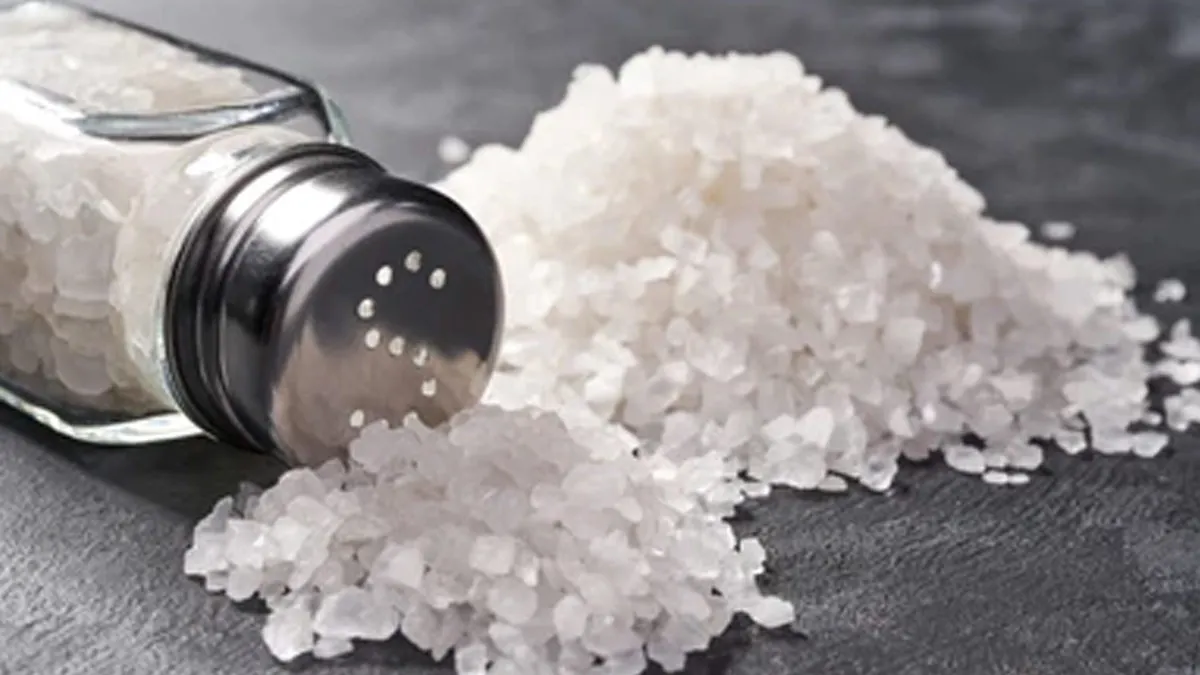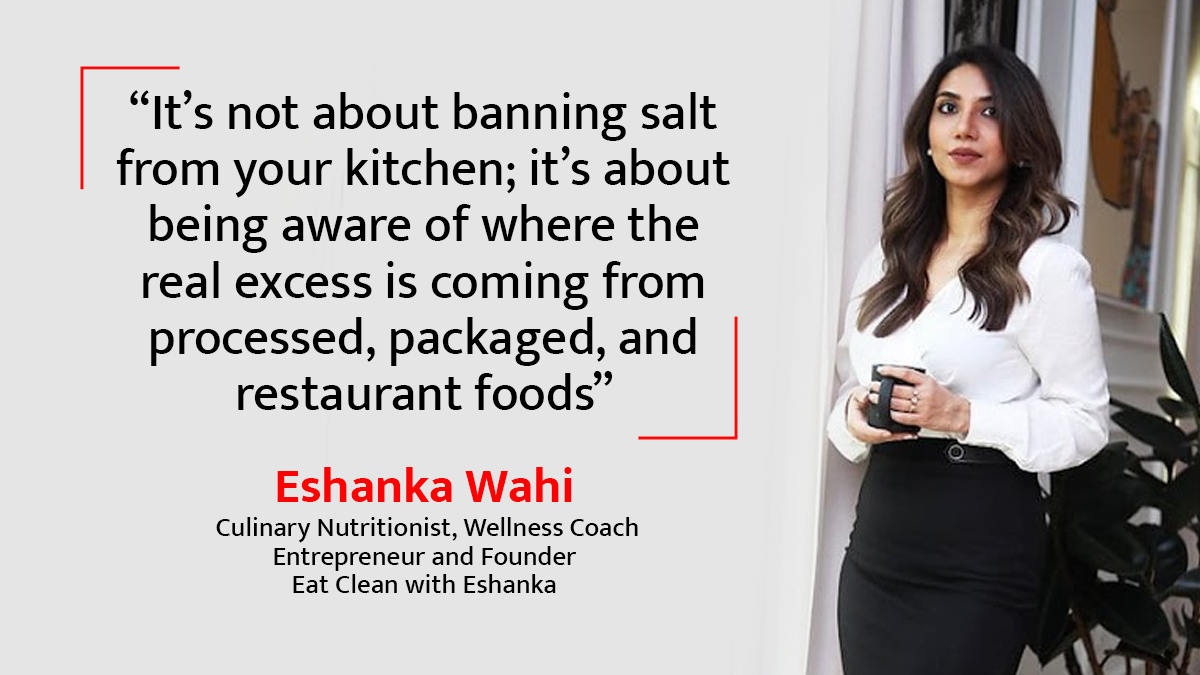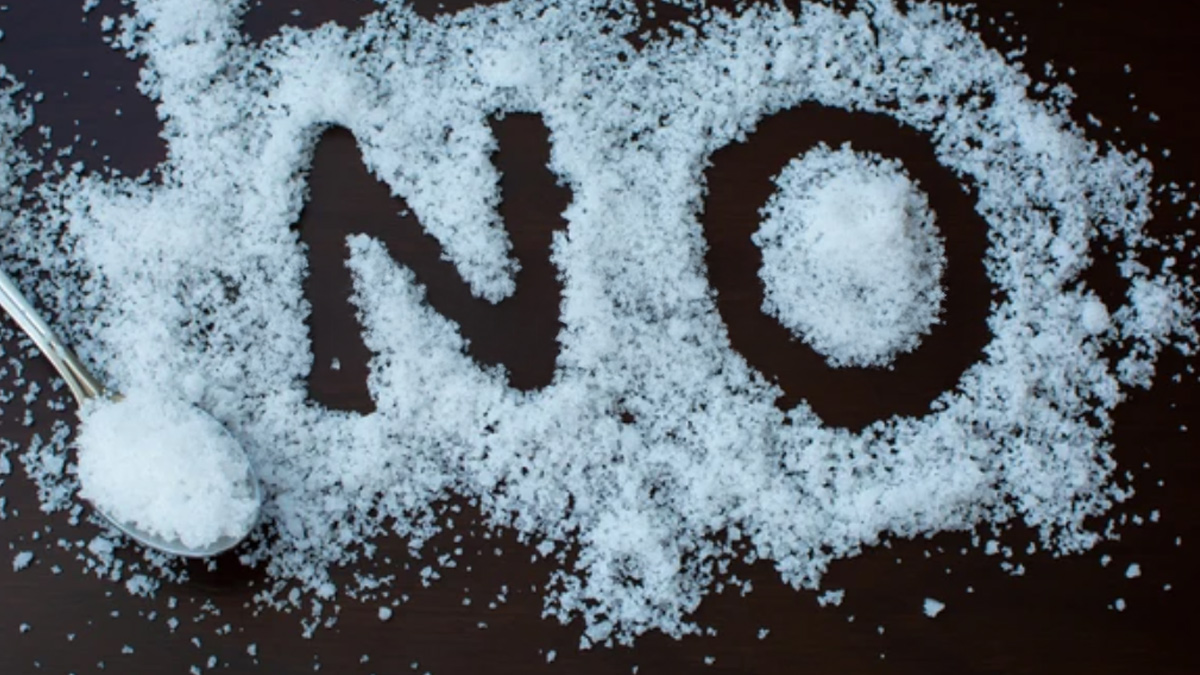
Salt is an essential source in the kitchen for taste and flavour, but excess salt can cause a silent saboteur of health. Men in their 40s need to pay extra attention to their sodium intake as their bodies undergo shifts. Blood vessels in men naturally become less elastic, metabolism slows down, and risks for chronic conditions, such as high blood pressure, heart disease, and kidney disorders start to rise.
Table of Content:-
Salt is a flavour enhancer, but in excess, it becomes a slow disruptor of internal balance. For men over 40, reducing sodium is one of the smartest preventive health moves. We spoke to Eshanka Wahi, a Culinary Nutritionist, Wellness Coach, Entrepreneur and Founder, Eat Clean with Eshanka, who explained the impact of sodium on men after their 40s and what they can do about it.
Why Sodium Becomes a Bigger Threat After 40

“Men around the age of 40 undergo various physiological changes, such as a rise in blood pressure, decline in kidney efficiency, decrease in muscle mass, and changes in water balance. These changes increase vulnerability to hypertension, cardiovascular disease, and kidney disorders, all of which are worsened by high sodium intake,” said Wahi.
According to the New England Journal of Medicine, researchers examined urine sodium levels in more than 100,000 people across 18 countries on five continents. It was found that higher sodium intake was linked to considerably increased blood pressure compared to individuals with lower consumption levels.
Your body’s ability to buffer and eliminate excess sodium weakens with age. What didn’t impact you at 30 can easily spike your blood pressure at 45.
Also Read: Foods And Drinks That Balance Sodium Salts In The Body
The Hidden Dangers of Too Much Salt

Sodium plays a crucial role in nerve function and fluid regulation, but overconsumption can cause a rise in blood pressure, an increased risk of heart strokes and attacks, and kidney strains, explained Wahi. According to a 2014 study, added salt, or sodium chloride, is a primary source of sodium in diets, consisting of 40% sodium and 60% chloride by weight.
It’s not about banning salt from your kitchen; it’s about being aware of where the real excess is coming from processed, packaged, and restaurant foods. The American Heart Association suggests limiting daily sodium intake to 2,300 milligrams, with an ideal goal of 1,500 milligrams for most adults, particularly those with high blood pressure. Reducing sodium by 1,000 milligrams daily can significantly improve blood pressure and heart health.
Also Read: Excessive Salt Intake Can Increase The Risk Of Depression, Expert Shares Prevention Tips
Simple Ways to Lower Sodium After 40
Reducing sodium intake can help maintain healthy blood pressure and overall well-being. Here are some easy ways to lower sodium in your diet:

- Read Labels: Be aware of the sodium content and always check for low-sodium foods. This habit helps you make informed choices and opt for products with lower sodium levels. Look for labels that say 'low sodium' or 'no salt added' and choose fresh or minimally processed foods whenever possible.
- Avoid Outside Food: Instead of relying on salt, prefer having homemade meals with spices, garlic, citrus, or herbs; it gives you an instant flavour. Cooking at home allows you to control the amount of salt used in your meals. Experiment with different herbs and spices to add flavour to your food without adding salt.
- Stay Hydrated: Water helps flush out the excess sodium and keeps optimal kidney function. Drinking enough water is essential for overall health, and it can also help reduce sodium levels in the body.
- Alternatives: Switch to low-sodium alternatives instead of soy sauce, ketchup, and salad dressings, as they contain excess salt. Look for low-sodium versions of your favourite condiments, or try making your own using fresh ingredients. This simple switch can make a big difference in your sodium intake.
Bottomline
Salt plays a crucial role, but moderation is key, especially after 40. Always keep sodium intake in control for healthier blood pressure, stronger heart function, and more energy. Making mindful swaps, such as using lemon zest instead of salt or skipping processed sauces, can be both a culinary win and a health boost.
[Disclaimer: This article contains information provided by an expert and is for informational purposes only. Hence, we advise you to consult your professional if you are dealing with any health issue to avoid complications.]
How we keep this article up to date:
We work with experts and keep a close eye on the latest in health and wellness. Whenever there is a new research or helpful information, we update our articles with accurate and useful advice.
Current Version